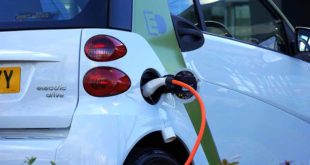Electric vehicle (EV) battery technology has come a long way in recent years, with a number of advancements that have led to improved performance and increased range for EVs. One of the most significant improvements has been in the area of energy density, which is a measure of the amount of energy that can be stored in a given volume of battery. This has been achieved through the use of lithium-ion batteries, which are now the most common type of EV battery.
Lithium-ion batteries have a number of advantages over other types of batteries, including higher energy density and longer lifespan. They also have a lower self-discharge rate, which means they can hold a charge for longer periods of time. This makes them well suited for use in EVs, which require a large amount of energy storage in a relatively small space.
Another important advancement in EV battery technology has been in the area of fast charging. This is a method of charging an EV battery that can significantly reduce the time it takes to charge the battery from a low state of charge to a high state of charge. This is achieved through the use of high-power charging stations, which can deliver a large amount of power to the battery in a short period of time. This is useful for EV owners who need to charge their vehicles quickly, such as those who are on long road trips.
In addition to these advancements, there is also ongoing research and development in the field of solid-state batteries, which have the potential to offer even higher energy density and faster charging times than lithium-ion batteries. Solid-state batteries use a solid electrolyte instead of a liquid electrolyte, which allows for higher energy density and faster charge and discharge times. These batteries are still in the early stages of development, but they have the potential to revolutionize EV battery technology in the future.
Another area of research is the recycling of EV batteries. As the number of EVs on the road increases, so does the number of used EV batteries that will need to be recycled. This is an important issue as the cost of raw materials for battery production is high and recycling can reduce the need for new resources. Additionally, recycling can also help to reduce the environmental impact of EV battery production.
Overall, the current state of EV battery technology is one of rapid advancement and innovation. Lithium-ion batteries have become the standard for EV use, and new developments such as fast charging and solid-state batteries have the potential to further improve the performance and range of EVs in the future. Additionally, recycling of EV batteries is also becoming an important area of research. The future of EVs is bright and the technology is developing at a fast pace, making them increasingly accessible and practical for everyday use.
 Alternative Energy HQ solar power for homes, wind energy, and bio fuel issues
Alternative Energy HQ solar power for homes, wind energy, and bio fuel issues









2 comments
Pingback: Electric Vehicles Continue To Be More Affordable And Operating Cost Stable - Alternative Energy HQ
Pingback: Owner Satisfaction Gets a Jolt from New Models as Electric Vehicle Market Grows, J.D. Power Finds - Alternative Energy HQ